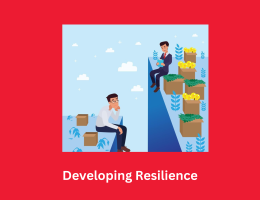
Understanding Self-Talk: Cultivating Positive Internal Dialogue for Enhanced Self-Confidence
- By admin --
- Sunday, 17 Mar, 2024
Introduction:
Self-talk, the ongoing internal dialogue we have with ourselves, plays a profound role in shaping our self-confidence and overall mental well-being. Every day, we engage in a continuous stream of thoughts, opinions, and evaluations about ourselves and the world around us. These internal narratives can either bolster our confidence or undermine it, depending on their nature and tone. Understanding the mechanisms behind self-talk and learning techniques to cultivate positive internal dialogue is crucial for building and sustaining self-confidence.
The Influence of Self-Talk on Self-Confidence:
Our self-talk acts as a powerful lens through which we perceive ourselves and interpret our experiences. Negative self-talk, characterized by critical or defeatist thoughts, can erode our self-esteem and confidence. Conversely, positive self-talk fosters feelings of self-assurance, resilience, and optimism. The impact of self-talk on self-confidence is significant, as it shapes our beliefs about our capabilities, worth, and potential for success.
Identifying Negative Self-Talk Patterns:
To cultivate positive self-talk, it is essential to first become aware of negative patterns that may be undermining our confidence. These patterns often manifest as self-criticism, doubt, catastrophizing, or perfectionism. Examples include thoughts like "I'm not good enough," "I'll never succeed," or "I always mess things up." By recognizing and acknowledging these patterns, we can begin to challenge and reframe them.
Challenging Negative Self-Talk:
Challenging negative self-talk involves questioning the validity and accuracy of our negative thoughts. This process requires us to adopt a more objective and compassionate perspective towards ourselves. One effective technique is to ask ourselves questions such as:
- Is there evidence to support this thought?
- Would I say this to a friend in a similar situation?
- What alternative, more empowering perspective can I adopt?
By challenging the irrationality or unfairness of our negative self-talk, we can begin to weaken its grip on our confidence and replace it with more balanced and constructive thoughts.
Cultivating Positive Self-Talk:
Cultivating positive self-talk involves intentionally nurturing a supportive and encouraging inner dialogue. This process requires practice and persistence but can yield profound benefits for our self-confidence and overall well-being. Here are some techniques to cultivate positive self-talk:
1.Affirmations:
Affirmations are positive statements or declarations that reinforce our strengths, values, and aspirations. By repeating affirmations regularly, we can rewire our subconscious mind to internalize empowering beliefs about ourselves. Examples include "I am capable and resilient," "I deserve success and happiness," and "I embrace challenges as opportunities for growth."
2.Gratitude:
Practicing gratitude involves focusing on the positive aspects of our lives and expressing appreciation for them. By cultivating a gratitude mindset, we can shift our attention away from negativity and towards abundance and possibility. Regularly acknowledging our blessings and achievements can bolster our self-confidence and sense of self-worth.
3.Self-compassion:
Self-compassion involves treating ourselves with kindness, understanding, and acceptance, especially in times of struggle or failure. Instead of harsh self-judgment, self-compassion encourages us to offer ourselves the same warmth and support that we would offer to a loved one facing similar challenges. Embracing self-compassion allows us to cultivate resilience and bounce back from setbacks with greater confidence and grace.
4.Visualization:
Visualization involves mentally rehearsing success scenarios or positive outcomes, vividly imagining ourselves achieving our goals and fulfilling our aspirations. By visualizing success, we can instill confidence in our abilities and reduce anxiety or self-doubt. Visualization techniques can help us create a compelling vision of our desired future and motivate us to take action towards realizing it.
5.Cognitive Restructuring:
Cognitive restructuring involves systematically challenging and reframing negative thoughts or beliefs that contribute to low self-confidence. By identifying cognitive distortions such as black-and-white thinking, overgeneralization, or personalization, we can replace them with more accurate and empowering perspectives. Cognitive restructuring empowers us to take control of our inner dialogue and cultivate a mindset conducive to self-confidence and growth.
Conclusion:
In conclusion, these are some of the most pertinent aspect of personal growth and well-being you must learn if you are to understand how your inner conversation affects your confidence which accordingly affects your learning. to gain power from our inner dialogues through cultivating self-compassion, stopping negative self talk patterns, challenging them and using affirmations, gratitude visualizations among others we can increase release within us.





